Neem Oil for powdery mildew, bee safe?
Peter1142
9 years ago
Related Stories
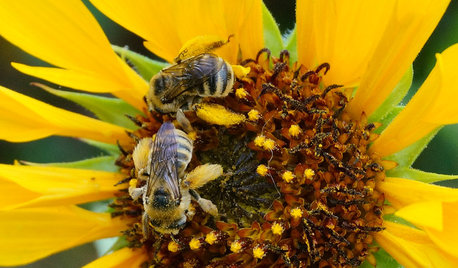
EARTH DAY12 Entertaining ‘Bee-haviors’ of Native Bees
The parade of pollinator antics is another reason to create a garden that nurtures native bees
Full Story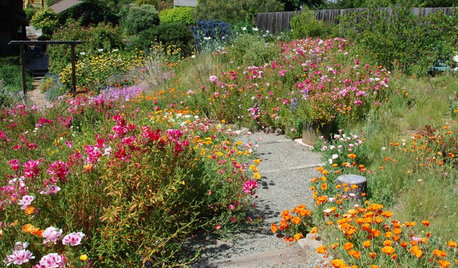
EARTH DAYHow to Design a Garden for Native Bees
Create a garden that not only looks beautiful but also nurtures native bees — and helps other wildlife in the process
Full Story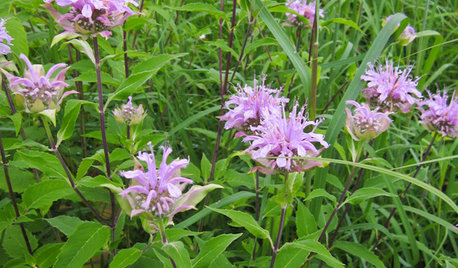
NATIVE PLANTSGreat Design Plant: Wild Bergamot, Friend of Foragers
Nourish butterflies and other winged creatures with the tubular flowers of Monarda fistulosa, a pretty pink native
Full Story
GARDENING AND LANDSCAPINGPorch Life: Banish the Bugs
Don't let insects be the bane of your sweet tea and swing time. These screening and product ideas will help keep bugs at bay on the porch
Full Story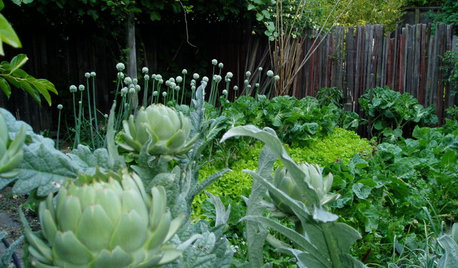
FRONT YARD IDEAS10 Ideas for a Front-Yard Edible Garden Your Neighbors Will Love
Choosing attractive, well-mannered plants and sharing the bounty will go a long way toward keeping the peace
Full Story
GARDENING GUIDESHow to Keep Your Citrus Trees Well Fed and Healthy
Ripe for some citrus fertilizer know-how? This mini guide will help your lemon, orange and grapefruit trees flourish
Full Story
WINTER GARDENINGPruning Secrets for Exquisite Roses
Encourage gorgeous blooms year after year with this time-tested advice on how to prune your rosebush in winter for health and shape
Full Story
GARDENING AND LANDSCAPINGBid Bad Garden Bugs Goodbye and Usher In the Good
Give ants their marching orders and send mosquitoes moseying, while creating a garden that draws pollinators and helpful eaters
Full Story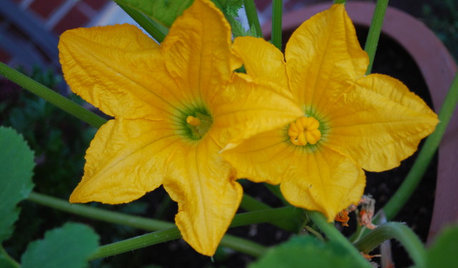
EDIBLE GARDENSSummer Crops: How to Grow Squash
Almost foolproof and with cheerful flowers, squash comes in a wide range of varieties to plant in spring
Full Story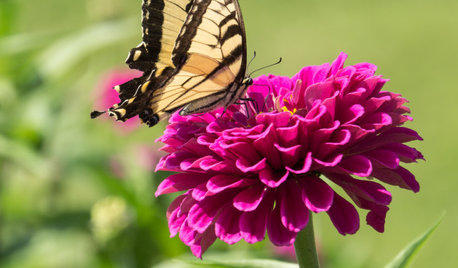
GARDENING GUIDES20 Favorite Flowers for Butterflies and Bouquets
Discover perennials and annuals that do double duty as butterfly magnets and versatile cut flowers
Full StoryMore Discussions



jimmy56_gw (zone 6 PA)
Peter1142Original Author
Related Professionals
Ilchester Landscape Architects & Landscape Designers · Arlington Landscape Contractors · Belvedere Park Landscape Contractors · Coeur d'Alene Landscape Contractors · Gresham Landscape Contractors · Mashpee Landscape Contractors · Salem Landscape Contractors · Siloam Springs Landscape Contractors · St. Louis Landscape Contractors · Tamarac Landscape Contractors · West Haverstraw Landscape Contractors · Woodbury Landscape Contractors · Irvington Landscape Contractors · Eustis Driveway Installation & Maintenance · Raynham Driveway Installation & Maintenancejimmy56_gw (zone 6 PA)
Peter1142Original Author
ltilton
Peter1142Original Author
ltilton
Peter1142Original Author
ltilton
jimmy56_gw (zone 6 PA)
jean001a
howelbama
seysonn
Peter1142Original Author
Bobbie Jay
Peter1142Original Author